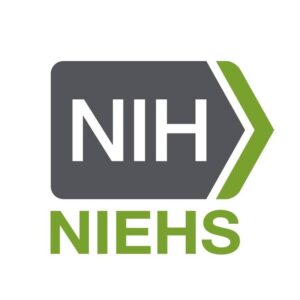

Study Title: Prenatal stress exposures and fetal inflammation during mid-gestation
Funding: NICHD R21HD109723
Overview: Maternal experiences of psychosocial stress are associated with an increased risk of preterm birth and inflammation during pregnancy has been implicated as a key pathway. Epidemiologic studies have observed positive relationships between psychosocial stressors and maternal inflammation levels. Similarly, inflammatory biomarkers, measured in maternal samples during the second and third trimesters, have been associated with preterm birth. However, how psychosocial stress and maternal inflammation both influence fetal inflammation during early to mid- gestation remains unknown. This knowledge gap persists in large part due to logistical and ethical challenges in obtaining fetal tissue samples during mid-gestation. Our study is utilizing a unique cohort of pregnant people who underwent elective pregnancy terminations during the second trimester in San Francisco, CA between 2010 and 2016. We will, for the first time, measure a comprehensive panel of 24 inflammatory biomarkers in 114 previously banked maternal and cord sera and placenta samples. Our study will examine relationships between psychosocial stress and maternal and fetal inflammation.

Study Title: Policies and Social Stress (PASS) Study
Funding: JPB Environmental Health Fellowship
Overview: Politics has identified as an important, yet understudied source of stress, as population level data finds that stress stemming from presidential elections has increased from 2016 to 2020. Unsurprisingly, levels of sociopolitical stress are not evenly distributed across the population, with women and non-whites reporting highest levels. Sociopolitical stress may also have disproportionate impacts on pregnant populations, as an increase in preterm births was observed following the 2016 election. The intersection between politics and reproductive justice cumulated in June 2022, when the US Supreme Court overturned Roe v Wade, which had allowed women to choose/decide when they had children. Access to abortion was subsequently restricted in Georgia, as a ‘heartbeat bill’ went into effect. It is hypothesized that these restrictions, in combination with sociopolitical stress, lead to an increase in depression and anxiety among reproductive age women. In the present cross-sectional study, we will test this hypothesis among women in Georgia.

Study Title: Comparing two analytic methods for assessing PFAS exposures in environmental epidemiology studies: targeted quantification of PFAS mixtures versus total fluorine quantification
Funding: HERCULES Pilot Award
Overview: PFAS (Per- and Polyfluoroalkyl Substances) are a class of chemicals found almost everywhere in the United States, including the water we drink, the food we eat, clothing we wear, and non-stick pans we cook with. High levels of PFAS have been linked to cancer, diabetes, pregnancy induced high blood pressure, and preterm birth. More than 9,000 PFAS exist, however, most research is focused on 10 to 12 individual PFAS chemicals. This means that there are potentially thousands of unknown PFAS chemicals that are understudied and difficult to measure, and yet could be harmful to human health. This pilot project will determine the amount of unknown PFAS in pregnant people. We will do this by measuring the levels of known PFAS and organoflourine, an indicator of total PFAS exposure, in 50 African American pregnant people in Atlanta, Georgia, a population that consistently experiences high rates of preterm birth relative to other racial and ethnic groups. We will also assess whether having a high level of unknown PFAS is associated with preterm birth. Findings from our study may illustrate disparities in known and unknown PFAS exposure important to perinatal (the weeks immediately before and after birth) health outcomes.

Study Title: Assessing levels of per- and poly-fluoroalkyl substances in breastmilk
Funding: RSPH Dean’s Pilot Award
Overview: PFAS (Per- and Polyfluoroalkyl Substances) are a class of virtually indestructible chemicals found in countless household items and exposure has been linked to poor health outcomes. Infants may be uniquely susceptible to PFAS exposure as a result of breastfeeding. Given that numerous health organizations recommend exclusively breastfeeding for 6 months, there is an urgent need to quantify the levels of PFAS in breastmilk. This project will test the hypothesis that PFAS levels decrease over time among those who breastfeed for longer durations, and more frequently. Using the SAWASDEE Birth Cohort, we will measure levels of 12 PFAS in blood samples obtained during pregnancy, and in breastmilk samples obtained at 4 and 12 months postpartum (N=50). Findings from this project will inform the basis for a new line of research that investigates the rate in which environmental contaminants are transmitted to the next generation via breastmilk.

Study Title: Oxidative Stress and Inflammation Biomarkers in Relation to Birth Outcomes in four ECHO Cohorts
Funding: NIH ECHO Program’s Opportunities and Infrastructure Fund
Overview: Compared to those born at term, infants born preterm are also predisposed to numerous adverse health outcomes, such as neurodevelopmental difficulties and chronic disease. Despite increases in the rates of PTB over recent years, the biological pathways leading to PTB are not well-characterized. We will use a nested case-control design to examine the combined roles of oxidative stress and inflammation in the relationship between social vulnerability factors, specifically race/ethnicity, SES, and stressful life events, and PTB, as measured by urinary levels of the biomarkers 8-iso-PGF2α, the primary 8-iso-PGF2α metabolite, and PGF2α, in four birth cohorts which represent geographically and racially diverse study populations with a wide array of SES and racial/ethnic groups.
